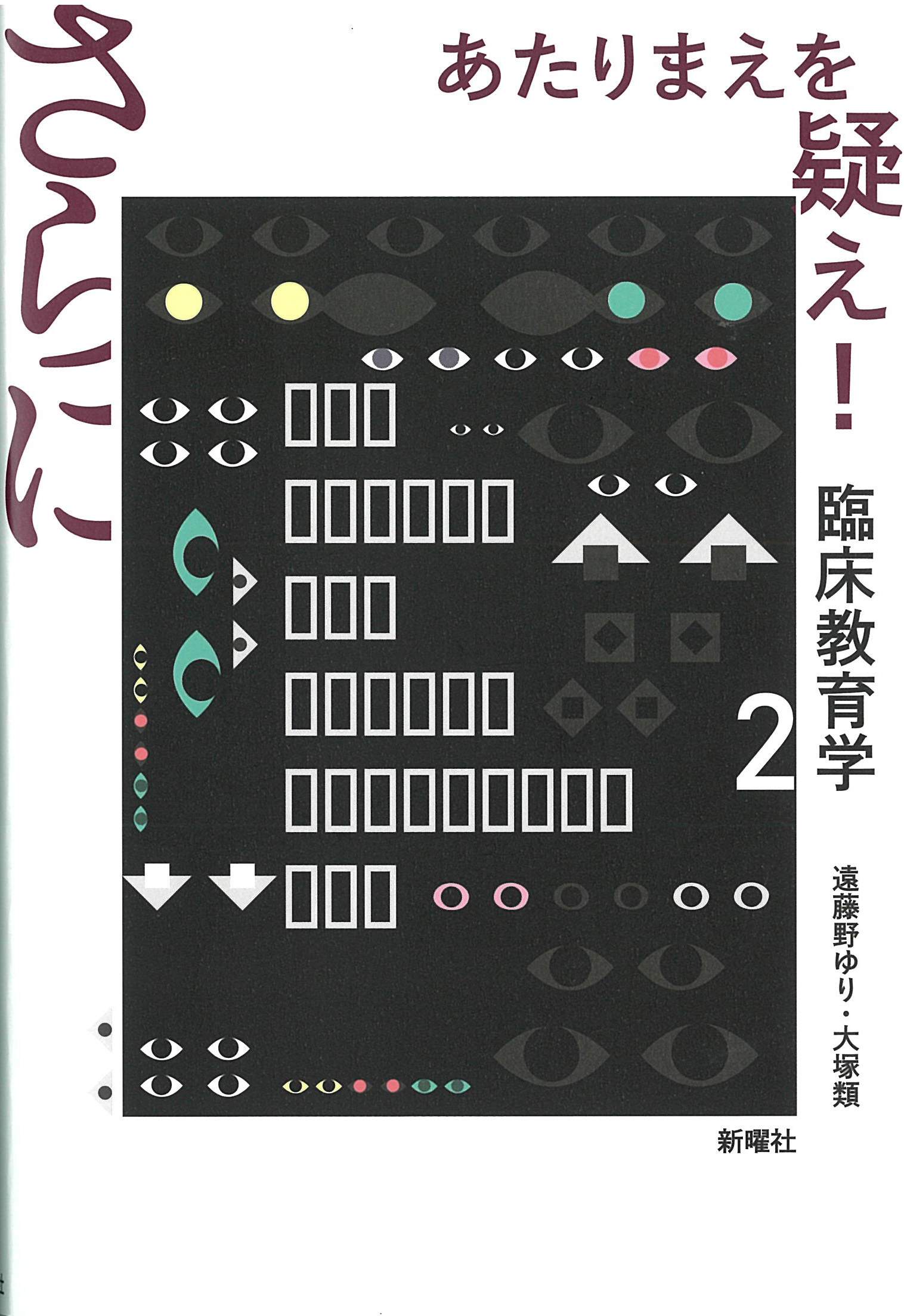
Title
Clinical Education 2 Sarani Atarimae wo utagae (Further Questioning of the Perception of Normality)
Size
200 pages, 127x188mm
Language
Japanese
Released
January 27, 2020
ISBN
9784788516656
Published by
Shinyosha
Book Info
See Book Availability at Library
Japanese Page
Unknowingly, and in any situation, we think about everything we experience within a framework of our own perception of ‘ordinariness’ and ‘normality’. This framework leads us to the belief that everyone else must surely consider ‘normality’ based on the same framework as ours. Questioning this framework provides an opportunity to think about issues regarding education and human existence. These three perspectives form the basis of this book.
Phenomenologist Martin Heidegger used the apt expression ‘das Man’ to indicate ‘anybody’, and because we all have an existence as one person within the ‘anybody’ group, all of us are able to live in peace because ‘ordinariness’ and ‘normality’ means living together with ‘everybody’. On the other hand, expressions such as ‘nobody respects you’ indicate that if individuals deviate from the ‘ordinariness’ and ‘normality’ of ‘everybody’, they will be exposed to criticism and attacks from ‘anybody’. We often criticize ourselves and others based on our perceptions of ‘ordinariness’ and ‘normality’. However, is the ‘normality’ on which we rely, a true representation of ‘normality’?
Fresh knowledge and new perspectives are necessary if we are to free ourselves from the curse of ‘ordinariness’ and ‘normality’. For that reason, each chapter of this book focuses on a different topic relating to clinical pedagogy, and each chapter is composed of three sections; the first section reviews the basic knowledge relating to the topic, the second section presents a perspective for re-examination of the topic, and the third section is a reconsideration of the topic based on the perspective outlined in the second section. The overall perspective for reconsideration of each topic is provided by the philosophy of phenomenology. Phenomenology takes the position that ‘everything is nothing more than a phenomenon for each individual’. From the point of view of phenomenology, everything that we experience is not an objective ‘truth’ but is a single subjective ‘phenomenon’. As a result, our conception of ‘everybody’, ‘ordinariness’ and ‘normality’ are relativized under conditionals such as ‘my normality’ or ‘his normality’.
If we question our perception of ‘normality’ and become able to embrace unconventional ways of thinking, we should be able to be more accepting of ourselves, and also of others who deviate from ‘ordinariness’ or ‘normality’. In the same way that when we are surprised we may say, ‘I wonder why I never noticed that before?’, by reframing our understanding of ourselves, others, and the world, everything will look new and different. This book uses the word ‘learning’ to describe this reframing process.
(Written by OTSUKA Rui, Associate Professor, Graduate School of Education / 2020)



 Find a book
Find a book

